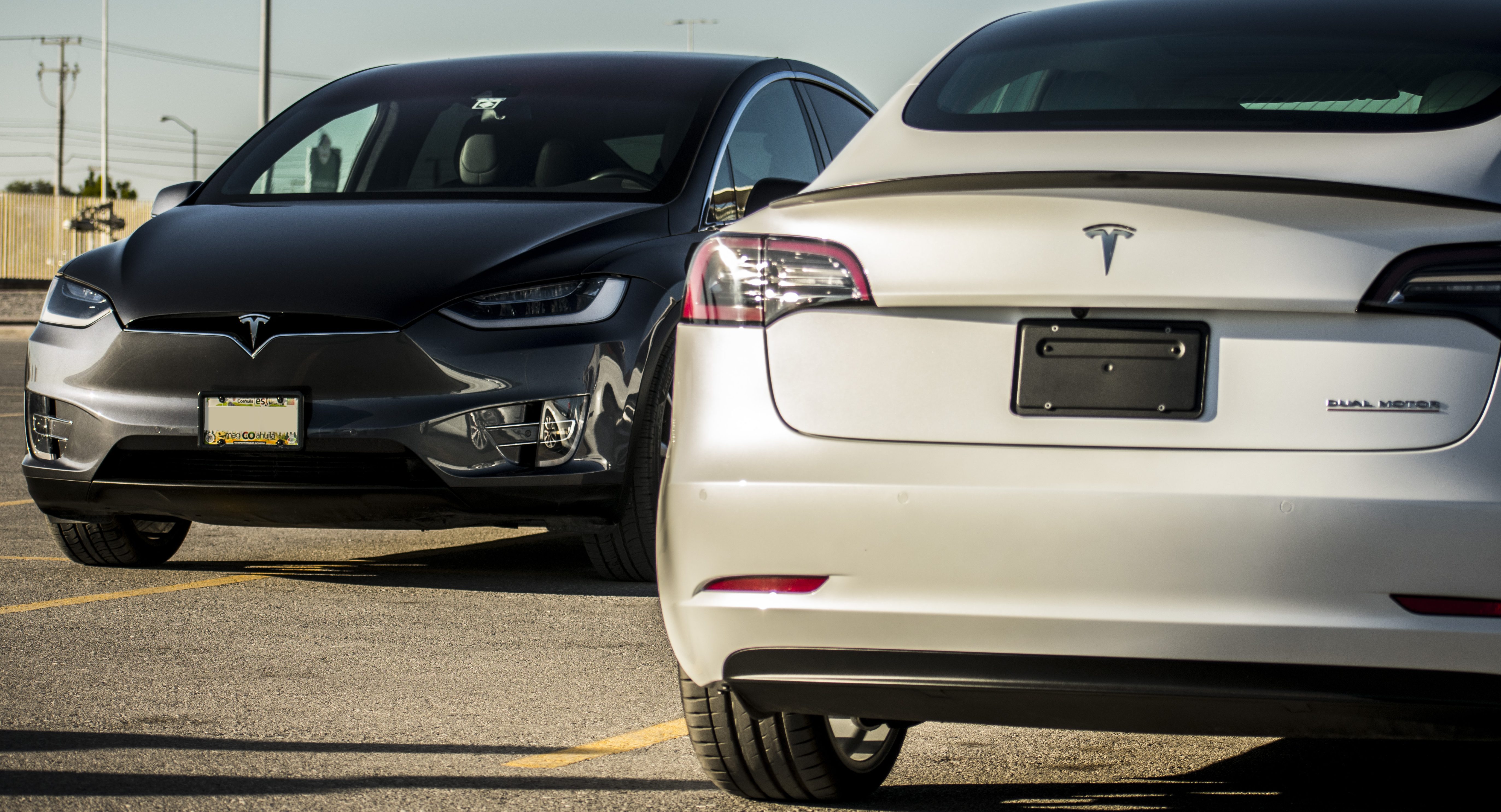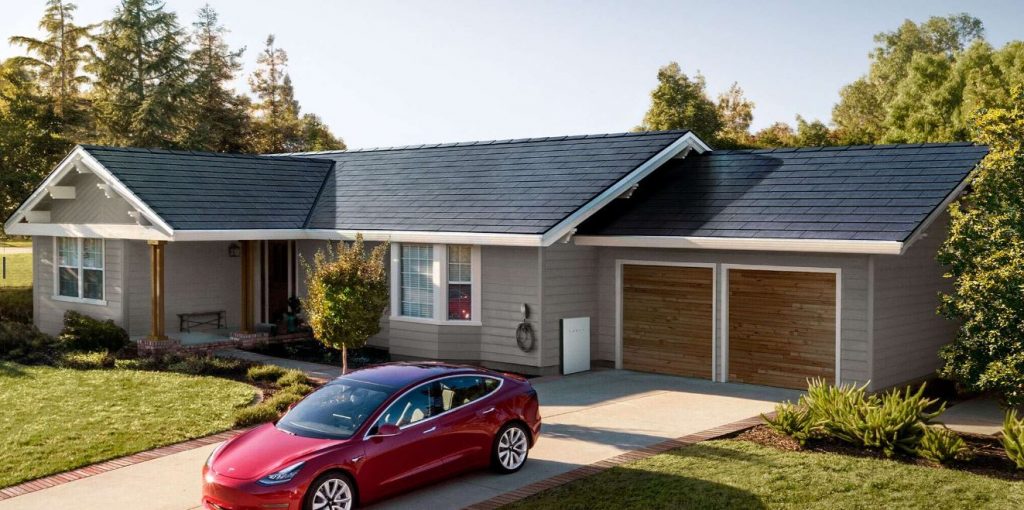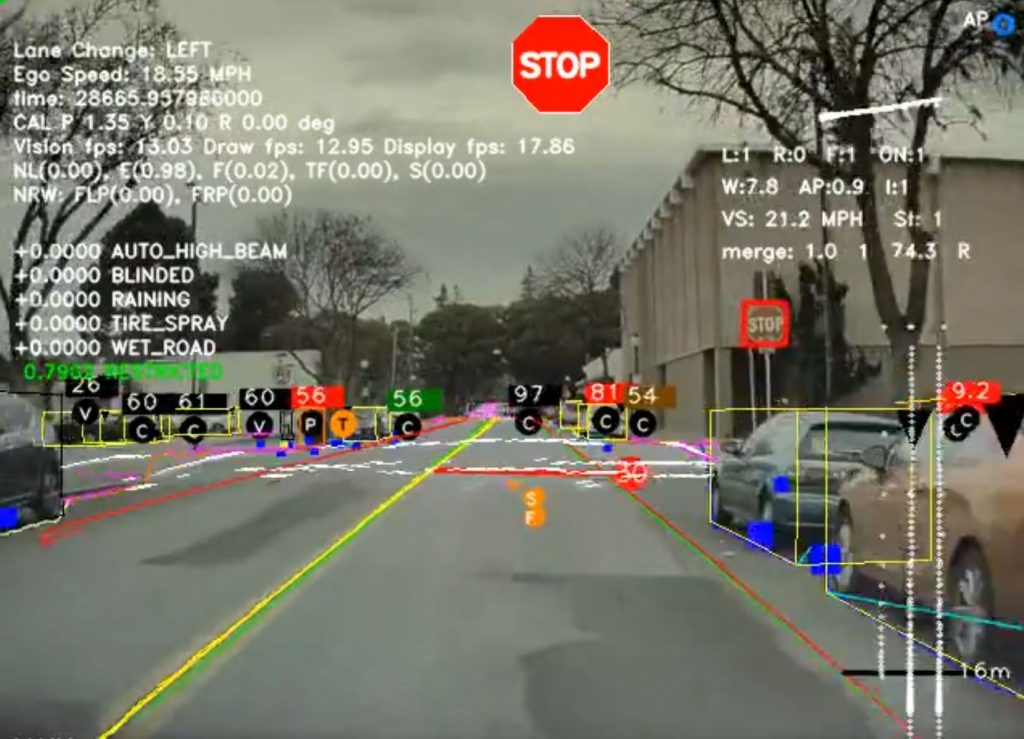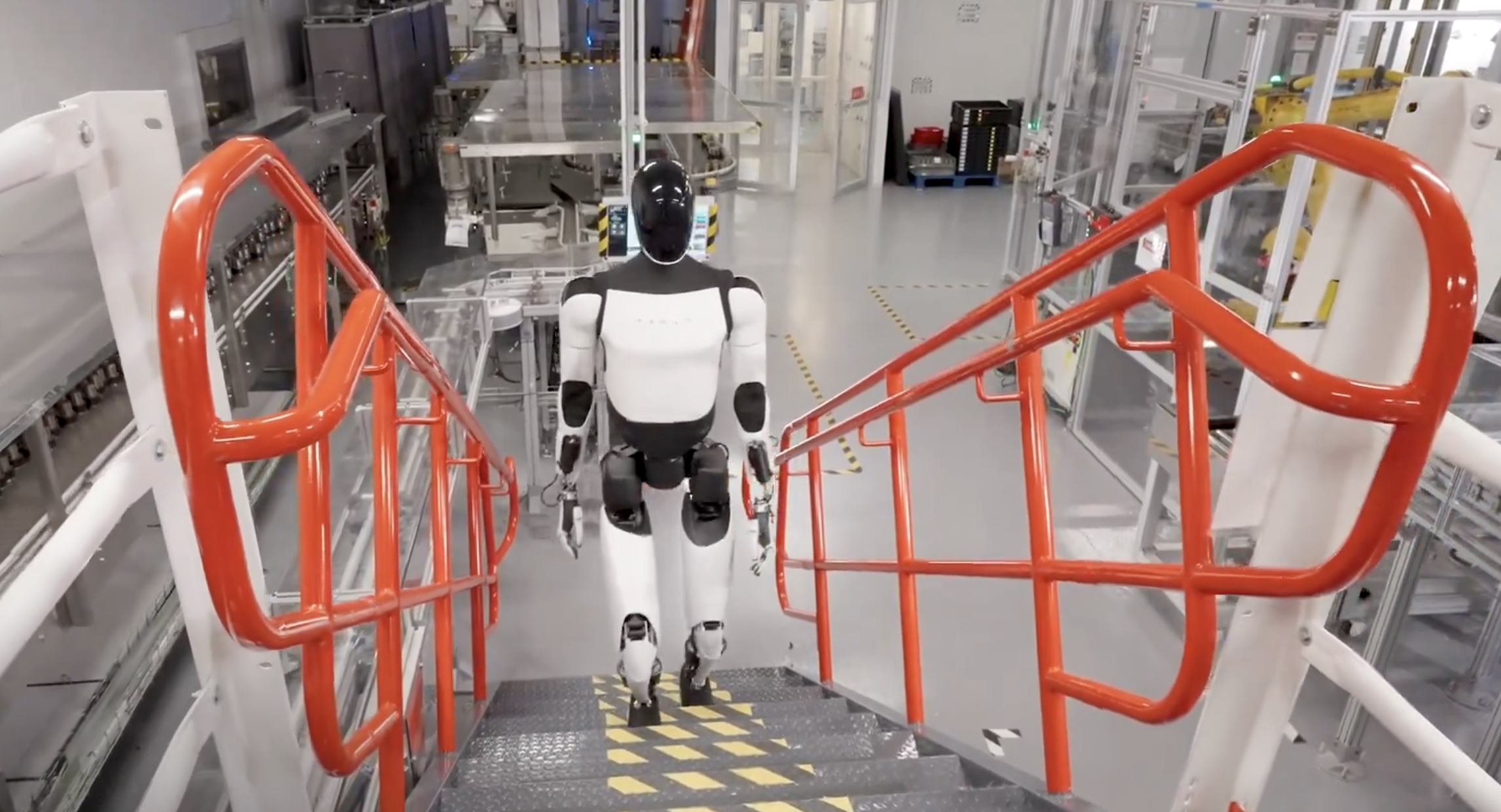

Investor's Corner
Tesla's battle lines are drawn with retail investors on one side and Wall St on another
There are very few stocks in the market that inspire such volatility as American electric car maker Tesla (NASDAQ:TSLA). The company has been on a tear lately, propelled by positive Q4 2019 results and emphasized by an ever-growing number of ardent supporters online. Yet amidst these victories, it appears that Tesla has finally reached a point where the battle lines are now being drawn between the company’s supporters, particularly its retail investors and analysts from Wall Street.
Tesla is a tricky company to evaluate, mainly since it covers several industries. The electric car maker is currently the second-largest automaker in the world by market value, though it only produces and delivers a fraction of the vehicles that veteran car companies sell every year. In 2019, Tesla sold just over 367,000 vehicles. Volkswagen, the third-largest automaker according to market cap, sold over 6 million units.
But the Tesla story is never just about the company’s electric cars. A look at Tesla’s mission shows that the company’s goals are bigger than just selling cars and making money doing so. Tesla aims to accelerate the world’s transition to sustainability, and making electric cars that are better than petrol-powered vehicles is but a crucial part of the puzzle. This also means that there are dimensions to the company that lies far beyond that of its electric car business.

It is this last point where the divergence is most evident between Tesla’s supporters and Wall Street analysts. Tesla shareholders, many of whom actually own the company’s products, are intimately familiar with CEO Elon Musk’s overall plans and goals, as well as the scope of the company’s numerous business. Very few of those who own a Model 3, for example, are not aware that Tesla also makes solar roof tiles, or residential batteries like Powerwalls, or grid-scale batteries like Megapacks for that matter.
Unfortunately, a good number of analysts who cover TSLA stock seem to be stuck under the impression that the company is an automaker, full stop. A look at analysts and critics who frequent media outlets such as CNBC shows that very few actually consider the potential, or even recognize the existence of Tesla Energy, a business that legendary billionaire Ron Baron believes could be just as big as the company’s electric car business. Even fewer acknowledge the value of Tesla’s Autopilot data, which are gathered from real-world miles.
This could be seen in Wall Street’s estimates on Waymo, a Google-based company aimed at developing and deploying a self-driving service. Morgan Stanley analyst Brian Nowak wrote in a note to clients last year that the startup is worth $105 billion because of its self-driving technology, and that’s a conservative estimate. Before last year’s update, Nowak valued Waymo at a far more optimistic $175 billion. In comparison, Tesla’s current valuation, as of last Friday’s close, stood at $134 billion. That amount included the company’s auto business, its energy business, and its autonomous driving tech.

As is the nature of Tesla stock, the company’s full potential is usually acknowledged and considered only by the company’s most ardent supporters on the Street. So for now, there is very little chance that the perception of Tesla between its retail supporters and traditional analysts will converge anytime soon. This divergence became a focal point in the company’s recent Q4 2019 earnings call, when Elon Musk admitted that retail investors might have a better grasp of the company’s plans than conventional Wall Street analysts.
“I do think that a lot of retail investors actually have deeper and more accurate insights than many of the big institutional investors and certainly better insight than many of the analysts. It seems like if people really looked at some of the smart retail investor analysts and what some of the smart smaller retail investors predicted about the future of Tesla, you would probably get the highest accuracy and remarkable insight from some of those predictions,” Musk said.
Tesla will likely remain a polarizing company for years to come. That said, Tesla Energy’s ramp is upon the market already, and the company’s Solarglass Roof V3 are now being installed to a growing number of homes in the United States. Tesla’s Full Self-Driving system is also closing in on being feature-complete. Overall, it seems that it will only be a matter of time before the true potential of Tesla emerges, and when it does, one would have to deny a whole lot of the company to consider it just as an automaker.
Disclosure: I have no ownership in shares of TSLA and have no plans to initiate any positions within 72 hours.
Investor's Corner
Tesla could save $2.5B by replacing 10% of staff with Optimus: Morgan Stanley
Jonas assigned each robot a net present value (NPV) of $200,000.

Tesla’s (NASDAQ:TSLA) near-term outlook may be clouded by political controversies and regulatory headwinds, but Morgan Stanley analyst Adam Jonas sees a glimmer of opportunity for the electric vehicle maker.
In a new note, the Morgan Stanley analyst estimated that Tesla could save $2.5 billion by replacing just 10% of its workforce with its Optimus robots, assigning each robot a net present value (NPV) of $200,000.
Morgan Stanley highlights Optimus’ savings potential
Jonas highlighted the potential savings on Tesla’s workforce of 125,665 employees in his note, suggesting that the utilization of Optimus robots could significantly reduce labor costs. The analyst’s note arrived shortly after Tesla reported Q2 2025 deliveries of 384,122 vehicles, which came close to Morgan Stanley’s estimate and slightly under the consensus of 385,086.
“Tesla has 125,665 employees worldwide (year-end 2024). On our calculations, a 10% substitution to humanoid at approximately ($200k NPV/humanoid) could be worth approximately $2.5bn,” Jonas wrote, as noted by Street Insider.
Jonas also issued some caution on Tesla Energy, whose battery storage deployments were flat year over year at 9.6 GWh. Morgan Stanley had expected Tesla Energy to post battery storage deployments of 14 GWh in the second quarter.
Musk’s political ambitions
The backdrop to Jonas’ note included Elon Musk’s involvement in U.S. politics. The Tesla CEO recently floated the idea of launching a new political party, following a poll on X that showed support for the idea. Though a widely circulated FEC filing was labeled false by Musk, the CEO does seem intent on establishing a third political party in the United States.
Jonas cautioned that Musk’s political efforts could divert attention and resources from Tesla’s core operations, adding near-term pressure on TSLA stock. “We believe investors should be prepared for further devotion of resources (financial, time/attention) in the direction of Mr. Musk’s political priorities which may add further near-term pressure to TSLA shares,” Jonas stated.
Investor's Corner
Two Tesla bulls share differing insights on Elon Musk, the Board, and politics
Two noted Tesla bulls have shared differing views on the recent activities of CEO Elon Musk and the company’s leadership.

Two noted Tesla (NASDAQ:TSLA) bulls have shared differing views on the recent activities of CEO Elon Musk and the company’s leadership.
While Wedbush analyst Dan Ives called on Tesla’s board to take concrete steps to ensure Musk remains focused on the EV maker, longtime Tesla supporter Cathie Wood of Ark Invest reaffirmed her confidence in the CEO and the company’s leadership.
Ives warns of distraction risk amid crucial growth phase
In a recent note, Ives stated that Tesla is at a critical point in its history, as the company is transitioning from an EV maker towards an entity that is more focused on autonomous driving and robotics. He then noted that the Board of Directors should “act now” and establish formal boundaries around Musk’s political activities, which could be a headwind on TSLA stock.
Ives laid out a three-point plan that he believes could ensure that the electric vehicle maker is led with proper leadership until the end of the decade. First off, the analyst noted that a new “incentive-driven pay package for Musk as CEO that increases his ownership of Tesla up to ~25% voting power” is necessary. He also stated that the Board should establish clear guidelines for how much time Musk must devote to Tesla operations in order to receive his compensation, and a dedicated oversight committee must be formed to monitor the CEO’s political activities.
Ives, however, highlighted that Tesla should move forward with Musk at its helm. “We urge the Board to act now and move the Tesla story forward with Musk as CEO,” he wrote, reiterating its Outperform rating on Tesla stock and $500 per share price target.
Tesla CEO Elon Musk has responded to Ives’ suggestions with a brief comment on X. “Shut up, Dan,” Musk wrote.
Cathie Wood reiterates trust in Musk and Tesla board
Meanwhile, Ark Investment Management founder Cathie Wood expressed little concern over Musk’s latest controversies. In an interview with Bloomberg Television, Wood said, “We do trust the board and the board’s instincts here and we stay out of politics.” She also noted that Ark has navigated Musk-related headlines since it first invested in Tesla.
Wood also pointed to Musk’s recent move to oversee Tesla’s sales operations in the U.S. and Europe as evidence of his renewed focus in the electric vehicle maker. “When he puts his mind on something, he usually gets the job done,” she said. “So I think he’s much less distracted now than he was, let’s say, in the White House 24/7,” she said.
TSLA stock is down roughly 25% year-to-date but has gained about 19% over the past 12 months, as noted in a StocksTwits report.
Investor's Corner
Cantor Fitzgerald maintains Tesla (TSLA) ‘Overweight’ rating amid Q2 2025 deliveries
Cantor Fitzgerald is holding firm on its bullish stance for the electric vehicle maker.

Cantor Fitzgerald is holding firm on its bullish stance for Tesla (NASDAQ: TSLA), reiterating its “Overweight” rating and $355 price target amidst the company’s release of its Q2 2025 vehicle delivery and production report.
Tesla delivered 384,122 vehicles in Q2 2025, falling below last year’s Q2 figure of 443,956 units. Despite softer demand in some countries in Europe and ongoing controversies surrounding CEO Elon Musk, the firm maintained its view that Tesla is a long-term growth story in the EV sector.
Tesla’s Q2 results
Among the 384,122 vehicles that Tesla delivered in the second quarter, 373,728 were Model 3 and Model Y. The remaining 10,394 units were attributed to the Model S, Model X, and Cybertruck. Production was largely flat year-over-year at 410,244 units.
In the energy division, Tesla deployed 9.6 GWh of energy storage in Q2, which was above last year’s 9.4 GWh. Overall, Tesla continues to hold a strong position with $95.7 billion in trailing twelve-month revenue and a 17.7% gross margin, as noted in a report from Investing.com.
Tesla’s stock is still volatile
Tesla’s market cap fell to $941 billion on Monday amid volatility that was likely caused in no small part by CEO Elon Musk’s political posts on X over the weekend. Musk has announced that he is forming the America Party to serve as a third option for voters in the United States, a decision that has earned the ire of U.S. President Donald Trump.
Despite Musk’s controversial nature, some analysts remain bullish on TSLA stock. Apart from Cantor Fitzgerald, Canaccord Genuity also reiterated its “Buy” rating on Tesla shares, with the firm highlighting the company’s positive Q2 vehicle deliveries, which exceeded its expectations by 24,000 units. Cannacord also noted that Tesla remains strong in several markets despite its year-over-year decline in deliveries.
-

 News3 days ago
News3 days agoTesla debuts hands-free Grok AI with update 2025.26: What you need to know
-

 Elon Musk1 week ago
Elon Musk1 week agoElon Musk confirms Grok 4 launch on July 9 with livestream event
-

 Elon Musk6 days ago
Elon Musk6 days agoxAI launches Grok 4 with new $300/month SuperGrok Heavy subscription
-

 News2 weeks ago
News2 weeks agoTesla Model 3 ranks as the safest new car in Europe for 2025, per Euro NCAP tests
-

 Elon Musk2 weeks ago
Elon Musk2 weeks agoxAI’s Memphis data center receives air permit despite community criticism
-

 News5 days ago
News5 days agoTesla begins Robotaxi certification push in Arizona: report
-

 Elon Musk2 weeks ago
Elon Musk2 weeks agoTesla reveals it is using AI to make factories more sustainable: here’s how
-

 Elon Musk2 weeks ago
Elon Musk2 weeks agoTesla scrambles after Musk sidekick exit, CEO takes over sales













